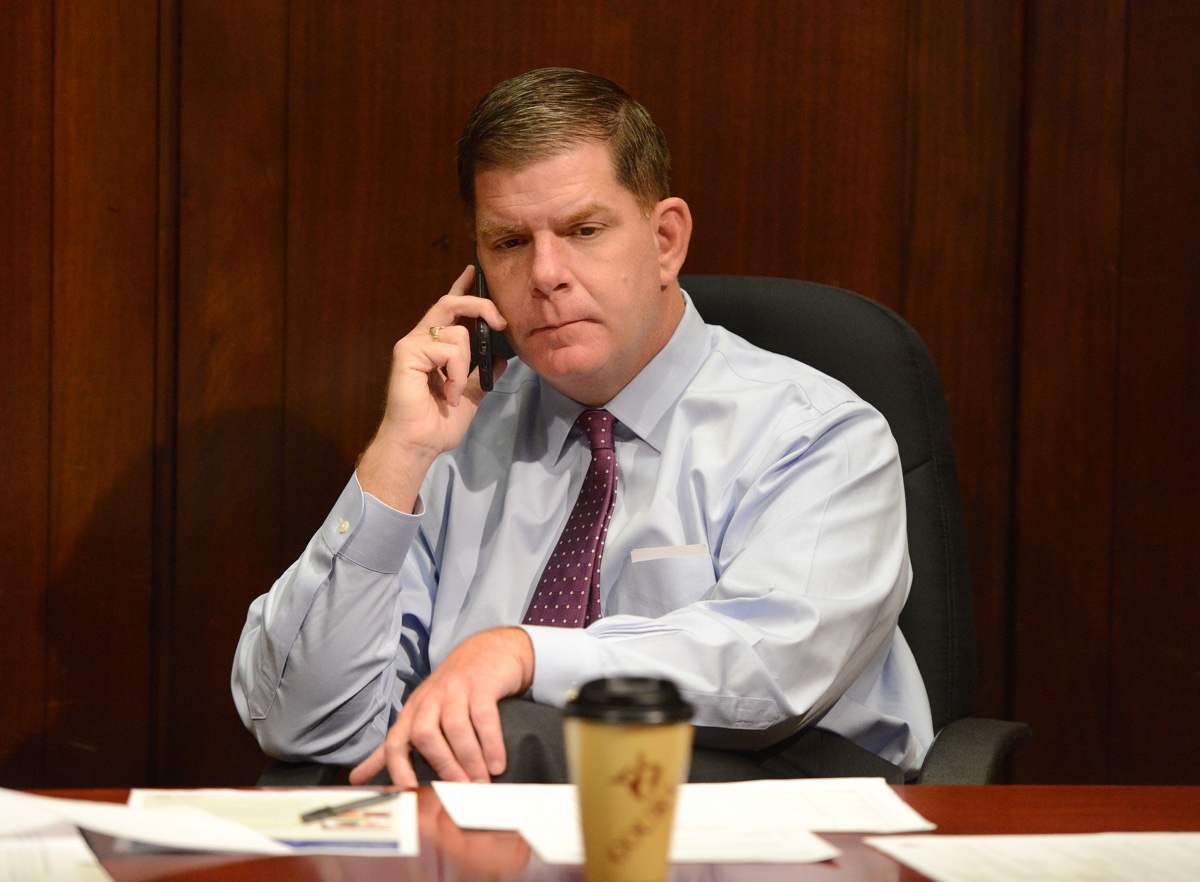Mayor Marty Walsh: Transparency Can Sometimes Make It Hard to Do My Job

Photo by Isabel Leon/Mayor’s Office
A spokesperson for then-mayoral candidate Marty Walsh said in 2013 that he had made transparency “a centerpiece of his campaign and of every policy plan he has put forward, and has been 100 percent transparent about his legislative record and career.”
In his 2014 inaugural address, Walsh named “increasing trust and transparency in city government” among his administration’s highest priorities. And for the better half of 2015, Walsh repeated that the deeply flawed Boston 2024 Olympic bid would be the most transparent in history.
Nearing his first re-election campaign, Walsh appears to have soured on the idea.
The mayor sat down with the Boston Business Journal this week for a far-ranging interview touching on 2017, the federal labor probe into his administration, and the indictment of tourism czar Kenneth Brissette amidst allegations of strong-arm union tactics. Naturally, the BBJ’s Craig Douglas asked about transparency.
“I think the hardest part is…the transparency around open meetings, requests for emails, it can be difficult to do your job because, for example, if you as a paper FOIA something and we’re in the midst of a negotiation, people converse over email now,” Walsh said. “So they can make a statement over email that can be completely taken out of context or not written with a whole line of conversation. So it is difficult sometimes, but I’m not saying it shouldn’t be open.”
Walsh’s first term has seen more than a few stumbles over public records law. Last June, Walsh charged activist Jonathan Cohn more than $1,000 for city employees’ emails with Boston 2024 organizers. In August, Walsh denied several requests for his text messages sent during the most pivotal moments of the Boston 2024 saga, with one city lawyer telling the Globe that it lacked the “technical capacity” to screenshot them. A couple months later, Walsh admitted that he had deleted those messages from his taxpayer-funded phone. Around the same time as the initial text message fracas, the state slapped City Hall over its handling of other Boston 2024 records, taking issue with incomplete, overdue responses, as well as the Law Department’s innovative interpretation of the public records law.
In April, City Hall changed its tune about the release of city employees’ emails with General Electric after handing Andrew Quemere of the Bay State Banner a $1,746.24 fee for them. When asked Walsh’s office in late February if it would waive the fee and release the emails, a spokesperson said the city was working with several news outlets to do so. Only after the Globe and WCVB published exclusive reports on the emails, just days after GE’s swanky welcome party atop 60 State Street, did Quemere receive the emails he requested, free-of-charge.
“It should all be put out to the public, anything we do, because that’s the way the law’s written for City Hall, but I think it is difficult sometimes,” Walsh told the BBJ. “It’s a learning curve for us.”
Who knew it would be this steep.


